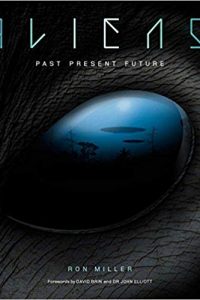Gabino Iglesias Reviews The All-Consuming World by Cassandra Khaw
 The All-Consuming World, Cassandra Khaw (Erewhon 978-1645660200, $25.95, 288pp, hc) September 2021. Cover by Ashe Samuels.
The All-Consuming World, Cassandra Khaw (Erewhon 978-1645660200, $25.95, 288pp, hc) September 2021. Cover by Ashe Samuels.
Once in a while a debut novel comes along that deserves to be on every radar, and Cassandra Khaw’s The All-Consuming World is that kind of book. An explosive, lyrical, foul-mouthed science fiction novel in which technological advances fail to silence the most basic human emotions, The All-Consuming World is an interstellar trip full of violence, anger, broken friendships, and secret agendas that proves Khaw is exactly what readers of their shorter work have known for a long time: Khaw is one of the most exciting voices in contemporary genre fiction.
Maya has died thousands of times, and each time she comes back in a new cyborg body, but while she can leave the destroyed body behind, she can’t do the same with her trauma. Maya used to be part of the infamous Dirty Dozen, a crew of criminals with a penchant for violence and a short temper that became legendary. Unfortunately, their last mission decimated the group and led to them splitting up. The resentment between the surviving members has brewed for 40 years. When Maya and Rita, who have a deeply codependent relationship and never separated, learn that one of them isn’t dead and that her consciousness is still alive, they decided to gather the remaining members of the Dirty Dozen, rescue their friend, and get to Dimmuborgir, a mythic planet not unlike Earth. In the process, they might help humans regain some of what they’ve lost. However, the AI that run the galaxy have other plans, and they will do whatever it takes to keep humanity from regaining control. As Maya, Rita, and the other surviving members come together to tackle their mission, their past threatens to destroy them before anyone else can get to them.
The All-Consuming World is a fast-paced, wildly imaginative science fiction narrative full of mind-blowing technology. Consciousnesses travel from place to place at will and often switch bodies. However, the elements that truly make this novel remarkable have nothing to do with the technology or the great descriptions Khaw offers of how all of it works; what makes this novel stand out are the way humanity proves more powerful than technology, and the hyperviolent, hilarious, pulpy atmosphere Khaw has crafted. This is a narrative in which corporeality and humanity aren’t at the top of the food chain, and everyone, including themselves, know it:
How do humans do it? Exist in isolation, rotting incrementally, their knowledge whittled by the passing of time, intrinsically ignorant of each other. Pimento cringes from his own musings, repulsed. Small wander the species always seems so brash, so frantic, so loud.
Despite the fact that humans aren’t in charge anymore, they are still around, and so are their feelings. In a way, things like grief, anger, love, and fear still play huge roles in the way people interpret and remember things. Yes, people can die and be brought back in a new body, but they can’t completely ignore things like oxytocin, their adrenal gland, or serotonin. Trauma, it seems, is more powerful than anything else. What makes us human is, for better or worse, so deeply rooted that it can’t be washed away by technological progress. Khaw knows humanity, and they use their characters to explore – and expose – what makes them tick:
We want to be uplifted. We macramé our societies with gods and their pantheons, celestial bureaucracies, playgrounds for the faithful, processes through which we can learn to disdain biological continuity. If we have to die, we demand the phenomenon be evanescent, a rung on the ladder toward better things.
Khaw’s exploration of humanity goes above and beyond things like grief, guilt, hatred, and anger: The All-Consuming World is a story that celebrates LGBTQ+ identities and gets at the core of what makes gender “rules” so passé. There are other strong nonbinary characters out there, but the ones here kick ass, and that makes this a must-read for those interested in the kind of representation that can make a difference.
The All-Consuming World is smart and timely, and the writing is outstanding, but it’s also a lot of fun to read. The chapters alternate points of view to give a very complete view of the sprawling narrative, but that doesn’t give everything away, and the secret agendas remain intriguing all the way to the end. It’s also deliciously violent, angry, and foul-mouthed: “Fuck you. Fuck off, Rita. Fuck you and fuck you, you fucking jackass. As if you’d ever given a flying fuck about what Johanna had to say. If you’d fucking listened to her, we wouldn’t even be in this mess. We’d all still be in one fucking piece. Johanna wouldn’t be dead, and….”
Khaw has written one of the most impressive debuts of the year. At once a narrative about broken friendships and codependency and an exploration of what it means to be human once AI share our space and rule over us, The All-Consuming World is a strangely poetic explosion of ideas, innovation, and feelings somehow molded into a novel that should help its author elbow their way to the top of the list of science fiction’s contemporary greats. It’s that good.
Gabino Iglesias is a writer, journalist, professor, and book reviewer living in Austin TX. He is the author of Zero Saints and Coyote Songs and the editor of Both Sides. His work has been nominated to the Bram Stoker and Locus Awards and won the Wonderland Book Award for Best Novel in 2019. His short stories have appeared in a plethora of anthologies and his non-fiction has appeared in the New York Times, the Los Angeles Times, and CrimeReads. His work has been published in five languages, optioned for film, and praised by authors as diverse as Roxane Gay, David Joy, Jerry Stahl, and Meg Gardiner. His reviews appear regularly in places like NPR, Publishers Weekly, the San Francisco Chronicle, Criminal Element, Mystery Tribune, Vol. 1 Brooklyn, the Los Angeles Review of Books, and other print and online venues. He’s been a juror for the Shirley Jackson Awards twice and has judged the PANK Big Book Contest, the Splatterpunk Awards, and the Newfound Prose Prize. He teaches creative writing at Southern New Hampshire University’s online MFA program. You can find him on Twitter at @Gabino_Iglesias.
This review and more like it in the November 2021 issue of Locus.
 While you are here, please take a moment to support Locus with a one-time or recurring donation. We rely on reader donations to keep the magazine and site going, and would like to keep the site paywall free, but WE NEED YOUR FINANCIAL SUPPORT to continue quality coverage of the science fiction and fantasy field.
While you are here, please take a moment to support Locus with a one-time or recurring donation. We rely on reader donations to keep the magazine and site going, and would like to keep the site paywall free, but WE NEED YOUR FINANCIAL SUPPORT to continue quality coverage of the science fiction and fantasy field.
©Locus Magazine. Copyrighted material may not be republished without permission of LSFF.







